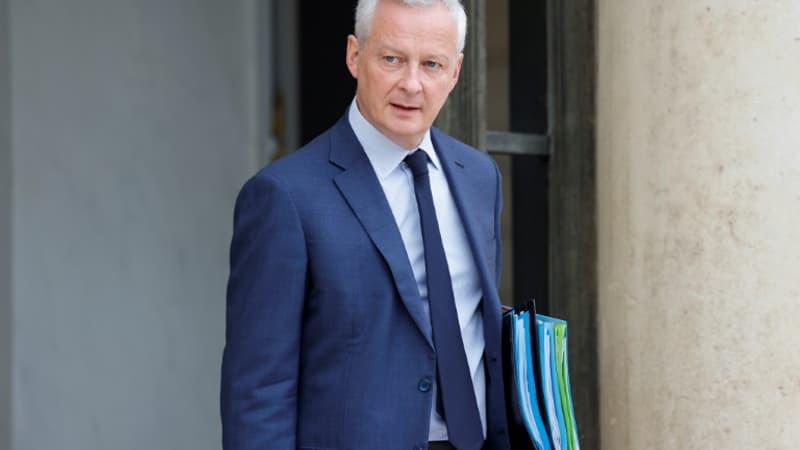The tricolor economy “resists”. On the occasion of the presentation of the macroeconomic framework of the 2023 finance bill, Bruno Le Maire confirmed on Tuesday that France will record positive growth next year, estimated at 1%. A forecast, however, lower than the latest Bercy projections, which had 1.4% in its stability program presented in July.
The Minister of Economy and Finance justified this downward revision by “the strong tensions at European and international level”. “These tensions are obviously linked to the continuation of the war in Ukraine, to tensions in energy prices with high price volatility that is disrupting our business (…) and to the economic fragility of our main trading partners” he said, citing the United States, China and especially Germany, which could enter a recession next year.
But in “this tense economic context, France resists”, greeted the tenant of Bercy, recalling that “we have 2.5% growth acquired in 2022”, a level that already exceeds “the forecasts of most observers”. An honorable balance that is due in part to the rise in consumption and investment in the second quarter, as well as to the order books that are still full in the industry.
Inflation revised to 4.2% in 2023
A shadow remains on the board: inflation. For 2022, Bercy is now counting on an overall increase in consumer prices of 5.3% (vs. 5.1% forecast in the stability programme). As for the expected slowdown in inflation in 2023, it seems less pronounced than expected with an inflation forecast pegged at 4.2% (vs. 3.3% initially).
In particular, the end of the fuel discount and the introduction of a slightly less generous energy price shield in January 2023. Gas and electricity prices paid by consumers will increase on average by 10 to 20%.
This increase is fully assumed by Bruno Le Maire, who said he was “perfectly aware” that the end of these massive public aid “will lead to a level of inflation that will remain high in December 2022, January and February 2023.” “We do not expect any improvement on the inflation front before sometime in 2023,” the Economy Minister continued.
“The restoration of public finances is not negotiable”
However, determined support measures to help households and businesses cope with rising energy prices have proven effective in recent months. Without them, “inflation would be two points higher in 2022”, stressed Bruno Le Maire. And to continue: “In the absence of protection, the average French electricity bill would have increased by 120 euros per month and that of gas by 180 euros per month.”
But this support of several tens of billions of euros has become too costly for the state at a time when the government is promising savings. “I want to say it very strongly, the restoration of public finances in France is not negotiable,” the Economy Minister insisted.
In this sense, the objectives remain the same: a 5% deficit in 2023 and less than 3% in 2027. The public debt must begin to fall from 2026, while the rate hike (2.5% to 10 years in 2023) is expected to cause the debt load to skyrocket (42.2 billion euros this year) in the years to come.
“Supply Policy Maintenance”
The search for savings is on. This is in part the objective of the “Bercy Dialogues” opened this Tuesday afternoon by Bruno Le Maire and Gabriel Attal in the presence of opposition parliamentarians to discuss the 2023 budget. With a red line: “do not let the debt, not to increase taxes”, we warned from the Ministry of Economy.
Even before these discussions, the two ministers made proposals to Emmanuel Macron and Elisabeth Borne to save money on public finances. All have been preserved, but they will not be definitively validated or made public until next week. Another measure has already been announced: the suppression of the contribution of business added value (CVAE) spread over two years and not all at once. “We have heard the declarations of the Court of Auditors and of a certain number of parliamentarians who encouraged us to stop the reduction of taxes and to abolish the CVAE in two stages”, explained Bruno Le Maire.
This decision has raised concern and criticism from businessmen. An “unfounded” concern, reacted the Economy Minister who promised to “maintain the supply policy”, “the most appropriate” to improve competitiveness and “the most capable of giving results in favor of employment”.
Source: BFM TV


